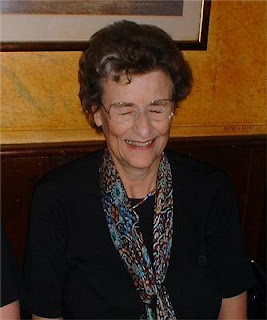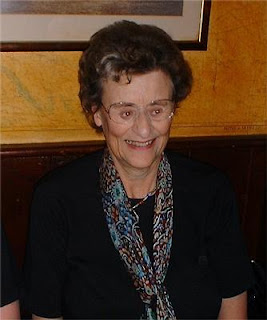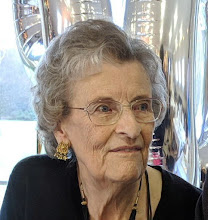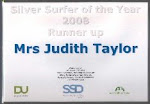Monday, March 30, 2009
Sunday, March 29, 2009
Going on holiday - (though not to Paris)

 After that, since there is a fourth son to be visited too, I shall travel up to Hebden Bridge with them to spend three nights visiting him in his new house - the first one he has actually owned himself, and which I haven't seen yet. (As a housewarming present, I bought him a pair of chimney pots for it, as the old ones needed replacing. They were like this one of mine, which has different pots of flowers in it according to the season. The summer version is much more exhuberant and untidy.)
After that, since there is a fourth son to be visited too, I shall travel up to Hebden Bridge with them to spend three nights visiting him in his new house - the first one he has actually owned himself, and which I haven't seen yet. (As a housewarming present, I bought him a pair of chimney pots for it, as the old ones needed replacing. They were like this one of mine, which has different pots of flowers in it according to the season. The summer version is much more exhuberant and untidy.)
Tuesday, March 17, 2009
Here's one for a laugh ...
The first picture was taken by my friend David Harris in November 2002. Just for a lark he decided to 'open' my eyes for me. Unfortunately he got the colour wrong, as you can see if you check with the third picture, taken more recently. I think he has made me look rather predatory. Clever work, though!



Tuesday, March 10, 2009
My grandfather's trousseau
It cannot be given to many people to know what their grandfather bought in the way of clothes for his trousseau; grandmother, possibly, since women are more inclined to value and to keep records of the things which are important to them. But I had a grandfather who was a very precise and careful man: his hobby was entomology, or the collection and study of insects, and by the time of his death he had amassed a collection of 65,000 flies, all painstakingly and beautifully laid out in cabinets and catalogued. It is now in the Natural History Museum in London. So it was entirely in his character that he should keep meticulous accounts throughout his life, both in his business and at home.

Grandpa as a child
Some of these account books came down to me through my mother, and have been lurking in a suitcase under the spareroom bed for decades. I have finally decided that the whole collection should go to the Archives & Heritage section of the City Library in Birmingham, where my grandfather was a master jeweller in the business started by his grandfather. But of course, as I begin to pack them into boxes I cannot resist having another look through the more interesting ones, to see what treasures from the past may lie therein.
Grandpa aged 20
The one I have just been dipping into is his personal account book covering the period from two years after his engagement, to two years after his marriage, that is 1893 to 1899. The book therefore contains a detailed record of all his purchases as he prepared to become a married man with a household of his own; of every penny that he spent on his honeymoon, as they did the grand tour of Europe together; and of two years of being head of a household after his return. (I have to wonder in passing if he carried this heavy leather bound cashbook, weighing 1 and 1/4 lbs, on his honeymoon with him. Knowing him, I think it is more than likely.)

Grandpa and Grandma on returning from their honeymoon (both aged 30)
In 1893, when my grandfather was already engaged, he was taking home a salary of £2 a week. From 1895 he was entitled to a third of the profits of the business, with a minimum of £4 a week, but until his marriage he only took home £2 a week,while a further £2 was banked for him in his capital account. Two years after his marriage his share of the profits was increased from one third to two fifths.
Here is grandfather's trousseau shopping over a period of six months [see note at end]:
Flannel for pyjamas - 2/5
Wool for trousseau socks - 3/6
Flannel for pyjamas - 2/2
Wool for socks - 3/6
2 prs white gloves - 4/-
2 white ties - 1/-
8 suits underwear - £3.18.8d
Flannelette for pyjamas - 1/2
Pair boots - 12/6
Buttons for pyjamas - 10d
Pyjama girdle - 4½ d
More Vyella for pyjamas - 3/-
1 Silk Hat - £1.2.0d
1 Bowler Hat - 8/6
6 ties assorted @1/6 = 9/-
1 doz collars - 9/-
1 doz handkerchiefs - 7/-
2 prs gloves - 3/9 & 2/11
Patent leather boots - £1.4.0
Madras Muslin - £6.2.3d
Mrs Fiddian - making 8 new shirts - £3.0.0d
Balance for Madras Muslin - 6/6
Wool for socks - 6d
Mrs Fiddian - altering 3 shirts & making 3 suits of pyjamas - 17/-
1 overcoat repaired - 2/-
1 Frock coat and suit - £5.15.0d
1 Morning suit - £4.12.6d
1 light grey overcoat - £3.3.0d
1 overcoat cleaned & repaired - 6/6
Then came something even more important, paying the business, via his father JW, for the rings he had made for the great day, and for a pendant for my grandmother. I do not have my grandmother's wedding ring, but I do have one of the pearl bridesmaid's rings, inherited from grandfather's unmarried sister, and I have my grandmother's engagement ring; this too is rather touching, in that the roughness of the work reveals it to be one of my grandfather's earlier efforts, before he achieved the 'master' status that he did later in his life.
JW for 1 wedding ring - £1.8.6d
3 pearl rings for bridesmaids @ 10/- = £1.10.0d
1 pendant for Nell - £2.10.0d
And finally, rather touchingly, his final weekly payment for board and lodging at home:
Mother - last time - 15/-
Seven days later, on the 22 April 1897 he was married and off on his honeymoon.
Grandpa as I remember him
Now, I am extremely interested in those eight suits of underwear, as many years later, after my grandfather's death in 1948, I became intimately acquainted with certain items of his underwear. By that time he was wearing two-piece sets: longjohns, and a longsleeved vest with a shallow boat neckline - no opening and no buttons (though those have become fashionable for men's and women's shirts in later years). These suits were machine knitted in fine wool, in the palest of lavender marl (a term used today, apparently, to describe a mixture of two different coloured yarns). There were two unused sets of these admirably protective suits in my grandfather's effects, and my mother offered the tops to me. They made splendid long-line sweaters to wear over jeans, with a natty scarf tied in the neck. It was a great talking-point too, to tell people that I was wearing my grandfather's vests! I have done some online research on men's underwear in the late 19th and early 20th century and can offer the following picture to pique your imagination:
[ Bear in mind that British money in those days was counted in pounds, shillings and pence, represented by the written symbols £ s d, also referred to verbally in short as 'l. s. d.' An amount consisting only of shillings and pence could also be written so: 15/6. Then consider that there were 20 shillings in a pound, but 12 pence in a shilling, and one penny was further divided in half pence, and quarter pence known as 'farthings'.]
Monday, March 09, 2009
Iron Curtain : Ribbon of Life
The BBC has been running a series called Natural World over the past 15 weeks. I have only caught the last two episodes: A Farm for the Future, and the one named in my title. Both of those have been excellent, and all of them are still available to view on the BBC's iPlayer, though only for those in the UK I fear. They will not be there for long, as the series finished on Friday, but it is possible to download this last episode to your computer, where you can keep it for 30 days to view at your leisure. I'm sorry I didn't post this sooner. [Click on the title above to go straight to the video.]
This is what the BBC says about Iron Curtain : Ribbon of Life
"When communism crumbled in 1989, it created an opportunity for wildlife. The Iron Curtain that divided communist Eastern Europe from the capitalist West had created a no-man's-land protected by barbed wire and minefields - a last haven for many rare animals and plants. This film tells the story of the movement, led by biologist Dr Kai Frobel, that set out to save the wildlife of this precious strip.
"Now as we celebrate the 20th anniversary of the fall of the Iron Curtain, we can also celebrate the birth of the biggest conservation movement in the world, a ribbon of life stretching 13,000 kilometres across Europe, protecting everything from bears and wolverines in Finland to rare eagles in Bulgaria."
I found this account deeply moving. I remember the sense of bitter frustration, that after six years of war to free the world of Nazism, the countries of Europe should find themselves once more hideously divided, this time by a country which had fought with us for freedom. I remember all the stories and films about families divided, and about people trying to escape from East to West, and losing their lives in the attempt. I remember my feelings, and my joyful tears, when the Berlin wall finally came down in 1989.
As I watched the story of how conservationists have set out to preserve the rare and the beautiful, inadvertently saved for us by this inhuman barrier, I wept again. It is a miracle.



